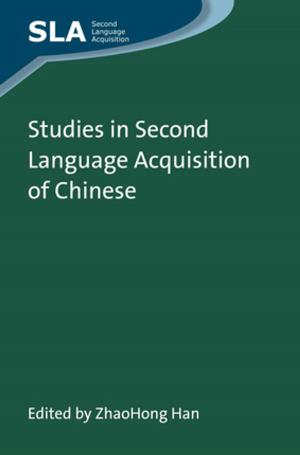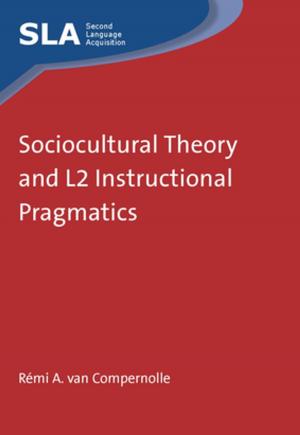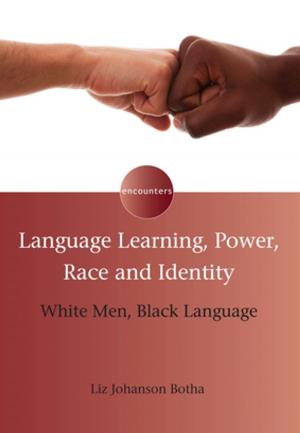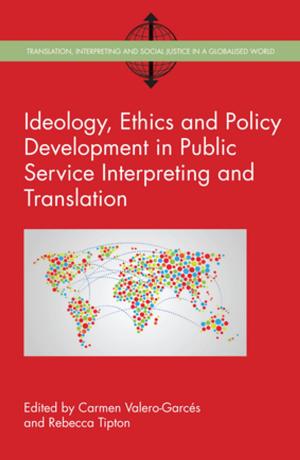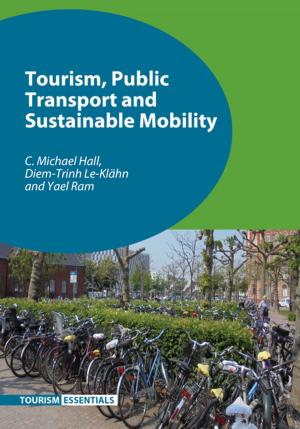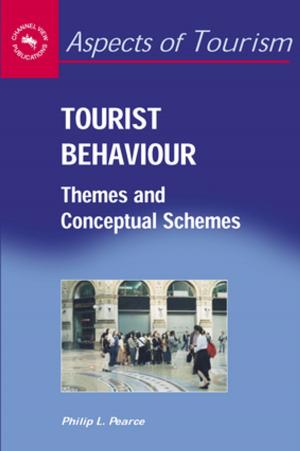Race and Ethnicity in English Language Teaching
Korea in Focus
Nonfiction, Social & Cultural Studies, Social Science, Cultural Studies, Ethnic Studies, Discrimination & Race Relations| Author: | Christopher Joseph Jenks | ISBN: | 9781783098446 |
| Publisher: | Channel View Publications | Publication: | August 14, 2017 |
| Imprint: | Multilingual Matters | Language: | English |
| Author: | Christopher Joseph Jenks |
| ISBN: | 9781783098446 |
| Publisher: | Channel View Publications |
| Publication: | August 14, 2017 |
| Imprint: | Multilingual Matters |
| Language: | English |
This book examines racism and racialized discourses in the ELT profession in South Korea. The book is informed by a number of different critical approaches to race and discourse, and the discussions contained in the chapters offer one way of exploring how the ELT profession can be understood from such perspectives. Observations made are based on the understanding that racism should not be viewed as individual acts of discrimination, but rather as a system of social structures. While the book is principally concerned with language teaching and learning in South Korea, the findings are situated in a wider discussion of race and ethnicity in the global ELT profession. The book makes the following argument: White normativity is an ideological commitment and a form of racialized discourse that comes from the social actions of those involved in the ELT profession; this normative model or ideal standard constructs a system of racial discrimination that is founded on White privilege, saviorism and neoliberalism. Drawing on a wide range of data sources, this book is a must-read for anyone interested in critically examining ELT.
This book examines racism and racialized discourses in the ELT profession in South Korea. The book is informed by a number of different critical approaches to race and discourse, and the discussions contained in the chapters offer one way of exploring how the ELT profession can be understood from such perspectives. Observations made are based on the understanding that racism should not be viewed as individual acts of discrimination, but rather as a system of social structures. While the book is principally concerned with language teaching and learning in South Korea, the findings are situated in a wider discussion of race and ethnicity in the global ELT profession. The book makes the following argument: White normativity is an ideological commitment and a form of racialized discourse that comes from the social actions of those involved in the ELT profession; this normative model or ideal standard constructs a system of racial discrimination that is founded on White privilege, saviorism and neoliberalism. Drawing on a wide range of data sources, this book is a must-read for anyone interested in critically examining ELT.






